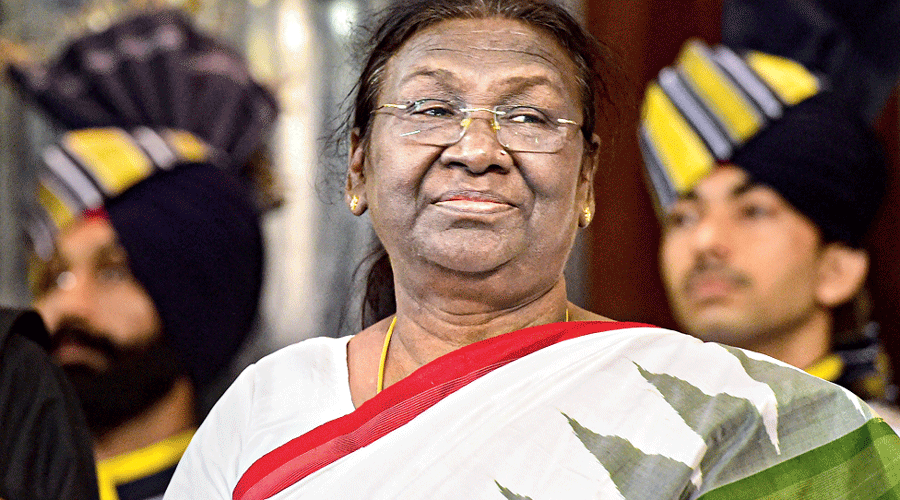The president of India, Droupadi Murmu, has made a case for expanding the definition of human rights to include the natural world in the face of the destructions wreaked by climate change. She referred to an Uttarakhand High Court decision recognising Ganga and Yamuna as living entities enjoying the rights of a juristic person — the Supreme Court had stayed this judgment later. Ms Murmu’s concerns merit scrutiny; the argument of extending rights to the animate, but non-human, world opens up exciting possibilities for legal and philosophical deliberations. Some nations are treading this path: Ecuador, for instance, has extended the right of existence to all wild animals in that country. But according legal rights to nature and its inhabitants will achieve little that existing laws have not been able to. Instead, urgent efforts need to be directed towards arresting the dilution of key legislations. For instance, the wild life (protection) amendment bill, 2021 seeks to weaken premier institutions like the State Boards for Wildlife, which stand in the way of clearing off crucial habitats for developmental projects. Further, last week, the goalposts were shifted for the Union government’s flagship Namami Gange programme. Conceived to improve the sanitation levels in the Ganga, it is now geared towards tourism and providing economic livelihoods.
What deserves closer scrutiny though is the failure to honour the human rights of large segments of marginalised people. The population of climate refugees is burgeoning with the rise in extreme weather events. According to conservative estimates, by 2050, between 200 million and 1.2 billion people will face little option other than to flee across borders or be dislocated within them as withering heat waves and rising seas encroach upon and disrupt people’s lives and livelihoods. This has coincided with the rise of protectionism across the globe with nations, including India, no longer willing to be accommodating of the displaced. India, incidentally, is yet to recognise a climate refugee in its law books. Forest communities, too, continue to be dispossessed of rights and resources by policies as well as a conservation edifice that is yet to strike the right balance between the imperatives of the economy and the ecology. This in spite of the existence of the Forest Rights Act, 2006. Proper implementation of existing laws can go a long way in safeguarding natural resources during the Anthropocene. Reimagining the discourse of rights can come later.











